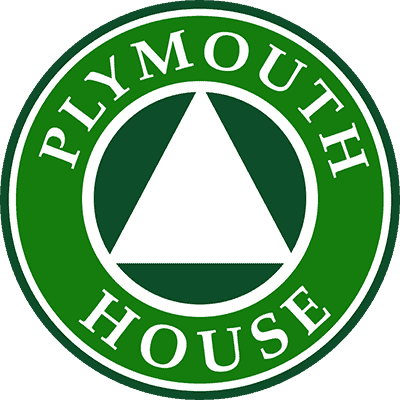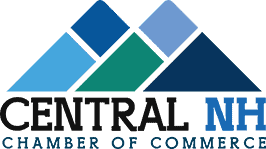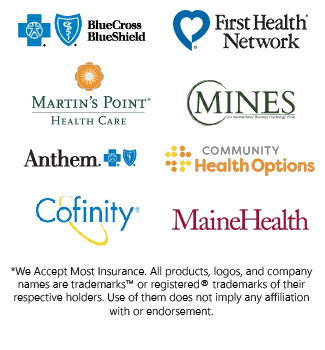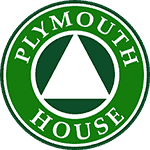Addiction Treatment & Drug & Alcohol Rehab Center Near Bridgewater, NH
Living with a substance or alcohol use disorder can cause chaos in your life. It can damage relationships and be physically and emotionally devastating. Entering treatment offers a new lease on life but can be filled with uncertainty. Will it be frightening? Will it be painful? And perhaps most importantly, where can you find high-quality care tailored to your circumstances?
If you or someone you care about struggles with substance or alcohol abuse, our New Hampshire rehab center can help. As a member of the Guardian Recovery network, The Plymouth House has combined its expertise as a successful 12-Step retreat with Guardian’s world-class medical and clinical care. We will work with you to develop an individualized and effective program to help you recover from addiction and get you on the road to long-term recovery. Contact us today to learn more about our treatment options near Bridgewater, NH.
Drug Detox & Addiction Treatment Services Near Bridgewater, NH
Most people still have drugs or alcohol in their body when they enter treatment. Our priority is to clear your system of these harmful substances through a process called detoxification, or detox. During detox, you may go through various uncomfortable physical and emotional symptoms. These feelings are known as withdrawal.
Our NH drug detox and treatment program provides guests with a friendly and supportive environment to recover from substance misuse disorder. Our team of medical professionals monitors treatment to ensure your safety and comfort as you start your recovery.
Disorders & Addictions We Treat at Our New Hampshire Treatment Facility
Our addiction treatment center uses 12-Step work, intense personal therapy, and spiritual exploration to help you along the path to recovery. Addictions we treat include:
- Alcohol
- Opioid
- Prescription Drugs
- Benzodiazepine
- Stimulants
- Painkiller
- Heroin
- Xanax
- Cocaine
- Fentanyl
- Meth
- Most other drugs
We Are Here For You
Let Us Help You Heal
Our Drug & Alcohol recovery services are second to none.
Learn how we can help by speaking with one of our Treatment Advisors today.
Prescription Drug Detox
Many drug addiction stories begin with the purposeful or unintentional misuse of prescription drugs — primarily pain relievers, tranquilizers, and stimulants. Getting off these medications can be taxing physically, emotionally, and mentally.
There are many reasons people become addicted to prescription drugs. It’s easy to build up a tolerance to prescription opioids, which increases the risk of illicit opioid use. Benzodiazepines are highly addictive and can cause physical dependence. Stimulants, like appetite suppressants and ADHD medications, are psychologically addictive.
For your safety and comfort when stopping these prescription drugs, medical detox is highly recommended.
Symptoms of Drug Withdrawal
The symptoms of prescription drug withdrawal will vary depending on the type of drug you take. For example, the symptoms of Xanax withdrawal are very different from the symptoms of Adderall withdrawal. Despite their categorical differences, symptoms of prescription drug withdrawal are rarely life-threatening when treated in a professional medical facility.
Alcohol Detox
We understand how difficult it can be to come to terms with an alcohol use disorder. Our alcohol detox program in NH enables you to undergo a safe, pain-free alcohol withdrawal while preparing you for the next step on your journey of addiction recovery. To learn more about our alcohol addiction recovery program or to begin your journey of healing, contact us today.
Alcohol withdrawal symptoms vary on a person-to-person basis. According to the National Library of Medicine, alcohol withdrawal can include (1):
- Severe headaches
- Body tremors/uncontrollable shaking
- Severe stomach cramping
- Nausea, vomiting, and diarrhea.
- Loss of appetite
- Insomnia and other sleep-related issues
- Profuse sweating/night sweats
- Increased heart rate and blood pressure
- Seizures.
- Disorientation and confusion
- Hallucinations (often associated with delirium tremens)
- Anxiety and panic attacks
- Depressed mood/suicidal ideation
Because withdrawal symptoms can be both physical and psychological, and because more severe withdrawal symptoms can be lethal when left untreated, entering into a professional medical detox program is the safest, most effective way to rid your body of alcohol and other substances.
Opioid Detox
When the body is exposed to any chemical substance, it adapts to its presence over time. Once the body, brain, and central nervous system become accustomed to opioids, attempting to quit suddenly and without medical supervision and treatment can be difficult. The uncomfortable physical symptoms of withdrawal coupled with intense psychological cravings often lead an individual back to use before the detox process is complete.
According to The National Library of Medicine, opiate withdrawal can occur any time long-term use is stopped or cut back and can begin anywhere from 12 to 30 hours after your last use (2).
Early symptoms of opioid withdrawal include:
- Agitation
- Anxiety
- Muscle aches
- Increased tearing
- Insomnia
- Runny nose
- Sweating
- Yawning
Later symptoms of withdrawal include:
- Abdominal cramping
- Diarrhea
- Dilated pupils
- Goosebumps
- Nausea
- Vomiting
With assistance from a licensed and accredited addiction treatment center, like The Plymouth House, you can detox from opioids in a private and comfortable setting, continue with comprehensive rehabilitation and aftercare, and ultimately return to independent living with the coping and life skills necessary to thrive in recovery.
Stimulant Detox
Stimulants affect the central nervous system by increasing neurotransmitter activity inside the brain. With heavy or ongoing use, your body comes to rely on stimulants to control cognitive function and focus. If you stop using stimulant drugs, you can experience uncomfortable physical and psychological symptoms that can be so severe they drive you back to using.
Everyone’s experience is different, but common stimulant withdrawal symptoms include:
- Jitters
- Anxiety
- Chills
- Dehydration
- Dulled senses
- Slowed speech
- Loss of interest
- Slowed movements
- Slow heart rate
- Irritability
- Hallucinations
- Paranoia
- Fatigue
- Depression
- Increased appetite
- Impaired memory
- Weight loss or gaunt appearance
- Insomnia or hypersomnia
- Body aches
- Drug cravings
A quality drug detox program, like that offered by Th Plymouth House, will help you manage withdrawal symptoms and keep you as comfortable as possible as your body rids itself of toxins.
The caring professionals at our New Hampshire rehab center will effectively treat all symptoms associated with stimulant withdrawal, regardless of the stimulant. If you or someone you love has been using an illicit stimulant like methamphetamine or cocaine or a prescription stimulant like Adderall or Ritalin, we can help.
Benzodiazepine Detox
Benzodiazepines (Benzos) are a prescription tranquilizer usually prescribed to treat anxiety-related disorders and persistent sleep issues like insomnia. Even when taken as prescribed by a licensed medical professional, benzodiazepines have a high potential for misuse.
Both physical and psychological symptoms can be severe when left untreated, and specific physical withdrawal symptoms can prove life-threatening in the case of severe benzo use disorders.
Symptoms commonly associated with benzodiazepine withdrawal include:
- Insomnia and other sleep disturbances
- Increased symptoms of anxiety, including panic attacks
- Increased agitation and irritability
- Hand tremors
- Nausea, vomiting, and dry reaching
- Profuse sweating/night sweats
- Difficulties concentrating
- Loss of appetite and weight loss
- Heart palpitations
- Perception changes
- Muscular and joint pain and stiffness
In more severe cases of benzo withdrawal, serious health-related complications like seizures are possible.
One of the most effective ways to prevent severe withdrawal symptoms is by slowly tapering off of the benzodiazepine rather than attempting to quit “cold turkey.” At The Plymouth House, we treat you individually, conducting an in-depth assessment upon admission to determine which detox methods best suit your unique case. If you have been using a high dose of benzos, you will benefit from slowly tapering off of the medication under the close supervision of a licensed physician. The dose will be reduced over several weeks so that the central nervous system does not go into shock.
Synthetic Drug Detox
Synthetic drugs duplicate the effects of plant-based drugs like marijuana and cocaine but are more addictive and very unpredictable. They cause intense withdrawal symptoms that medically supervised detox can help manage.
Common withdrawal symptoms include:
- Psychosis
- Tremors
- Chest pain
- Blurred vision
- Heart palpitations
- Coma
- Dehydration
- Vomiting
- Diarrhea
- Seizures
- Heart attack
- Dizziness
- Difficulty breathing
- Chills/hot flashes
- Numbness
- Insomnia
- Paranoia
- Sweating
- Disorientation
- Stroke
Our Drug & Alcohol Treatment Services Include
Our Levels of Care for Substance Use Recovery
Maintaining sobriety is a life-long process that requires different types of care at various stages, which is why we offer many levels of care. At The Plymouth House, we will work with you to prepare and build a solid foundation for continued success in recovery. The levels of care we offer include:
- Medical detox — In medical detox, you will undergo a safe, pain-free withdrawal under the close supervision of a team of medical professionals.
- Residential inpatient treatment — This is the most intensive treatment option, lasting 30 to 90 days, depending on your needs.
- Partial hospitalization — This level of care is a step down from inpatient treatment. It includes full days of intensive therapeutic care (usually seven days a week) with the freedom to return home in the evenings.
- Extended care — You can continue coming to The Plymouth House campus to complete your steps, continue therapy, and attend groups, meetings, and workshops. This level of care is designed to help you gradually reintegrate into the world while being supported by The Plymouth House community.
Substance Use Treatment Therapies
We offer a variety of treatment therapies that we use to develop a personalized recovery program based on your unique experience and needs. You may participate in several of the following therapies, depending on your situation:
- 12-Step program — While we are not affiliated with AA, we believe in AA’s 12 steps and their power to transform lives.
- Therapy and psychiatric care — Therapies, including individual, group, and family treatment sessions, along with psychiatric services for those with mental health diagnoses, are a core part of treatment.
- Cognitive behavioral therapy (CBT) — Also known as ”talk therapy,” CBT helps you change negative thought patterns to positive ones, adjusting how you function and interact with the world around you.
- Eye Movement Desensitization and Reprocessing (EMDR) — EDMR is a therapeutic technique that is highly beneficial for people struggling with unresolved trauma.
- Dialectical behavioral therapy (DBT) — DBT is a talk therapy focused on developing healthy social skills and learning how to regulate emotions.
- Yoga and meditation — These calming modalities can help you slow down, breathe, find your sense of self, and calm your anxieties. These methods have proven to be highly beneficial to impulse control.
- Recreational therapy — Learning to have fun is an essential part of recovery. Our guests are exposed to a range of healthy, sober-friendly activities. While participating in these activities, you may delve deeper into personal challenges and work toward cognitive, emotional, physical, and leisure development in a safe and supportive setting.
Ready To Begin Your Drug & Alcohol Treatment?
We Offer A Safe & Effective Program
Don’t let Drug & Alcohol addiction control your life.
Call us today and let’s get you started on the path to a better you.
Drug & Alcohol Use Statistics in Bridgewater, NH
Bridgewater, NH, is a part of Grafton County and nestled into the southern edge of the White Mountain National Forest. Like many communities, Bridgewater has been affected by the opioid crisis.
According to a 2021 report by the Substance Abuse and Mental Health Services Administration (SAMHSA), 2.86% of people ages 12 and older reported pain reliever misuse in the past year, and 16.2% reported having a substance use disorder (3).
What to Look for in a Local Addiction Treatment Center Near Bridgewater
Once you make the courageous decision to seek treatment for your addiction, it’s vital to find a program that meets your personal needs. Here are a few questions to ask when considering drug or alcohol detox and treatment in New Hampshire:
- What is the program’s treatment environment like?
- Does the facility have the amenities you need?
- Are family involvement and support offered?
- What is the program’s client-to-staff ratio?
- Do staff members hold degrees or certifications in psychology, counseling, or social work, with specialties in addiction treatment?
- How does the program approach addiction treatment?
- Do they offer group therapy, individual counseling, medication-assisted treatment, and alternative therapies?
- What is their treatment philosophy?
- What levels of care do they provide?
- Do they offer aftercare and relapse prevention support?
Why Choose The Plymouth House for Your Recovery?
The Plymouth House has provided individuals and their families hope for a better life, free from addiction since 2002. In 2021, we joined the Guardian Recovery network, a leader in substance use disorder treatment with two decades of experience providing a full continuum of care for clients and their families throughout the recovery process. By joining Guardian Recovery, The Plymouth House combined its expertise as a 12-Step retreat with Guardian’s world-class medical and clinical care excellence.
Being a part of Guardian Recovery has allowed The Plymouth House to expand its medical and clinical staff to include primary care physicians, licensed psychiatrists, and experienced clinicians. We are nationally accredited and recognized and accept most major health insurance.
Begin Healing Now!
Have A Call With One Of Our Treatment Advisors
Don’t Suffer Any Longer
Contact Us Today
Seeking substance use treatment for an alcohol or substance use disorder can be intimidating, but The Plymouth House will walk you through every step of the process. Our core 12-Step process, combined with expert medical and clinical care, provides the most robust foundation for your long-term recovery.
Our team of caring medical, clinical, and recovery professionals has decades of combined experience providing you with the healing necessary for long-term recovery. Our seven-acre campus, nestled in the White Mountains of New Hampshire, is an idyllic place for you to recover mentally, emotionally, physically, and spiritually from addiction.
Your journey to sobriety begins when you contact us — we will immediately connect you with someone who can help. We understand that alcohol and substance use disorder treatment is not a one-size-fits-all solution, and we are dedicated to helping you find the treatment option that makes the most sense for your unique clinical needs. Contact us today to begin your journey of recovery.
Get Started Now
Give us a call 24/7
(888) 693-1927















